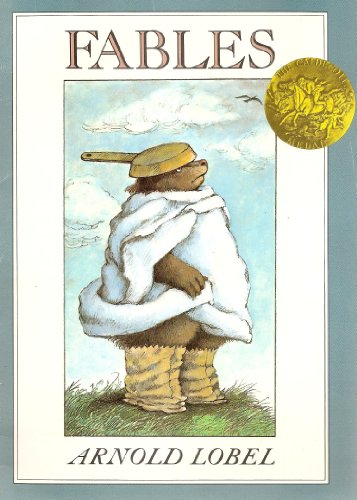
This book is full of Aesop-like fables about animals that are greedy, naughty, confident, and lucky and this book is surely to be an instant favorite for children who want to learn useful lessons in life.Īrnold Lobel’s writing is witty and inventive as he narrates each fable with a wise and proper air, indicating that the main characters are of high class (which might explain why they are dress in Victorian-era clothing) yet they tried to learn the trials of life as explain by the moral at the end of each fable. “Fables” is a book full of (guess) fables written by Arnold Lobel and is the winner of the prestigious Caldecott Medal. I certainly didn't like this 'lesson' and while I understand that this isn't the most recent book, compassion is something that's been around for centuries. Or to perhaps leave judgment of others to some higher authority. Perhaps the better lesson would have been a teaching moment, where someone with compassion can work with the offender to understand that they did something not acceptable. And I have to wonder if it teaches children to react to this kind of behavior in that way. But with an autistic child who doesn't understand how their behavior impacts others - this kind of lesson seems harsh in a very "you get what you deserve" sort of way. I understand the sentiment - you don't have friends because you don't act right. As a parent of autistic children I had a hard time with this Fable. But they weren't all that bad and I was willing to go along with this book up until "The Pelican and the Crane."Ĭall me triggered, as I probably am.

Some of the lessons I don't think were valid lessons at all.

The lesson at the bottom says:’Nothing is harder to resist than a bit of flattery.’ She understood the story and she thought it was funny too. The niece enjoyed the story about a Rhinoceros out shopping for a new dress. There were several stories he liked in here. I think the nephew missed that important point. No one would invite the pelican over because he was so messy.

I don't think he got the point of the story.

He still can make a mess, but he is better now. The nephew loved the pelican who is a mess at dinner. The kids thought some of these were funny and some of the stories were boring. The artwork is lovely and focuses on the heart of the story. This is a long book that is a lot to read in one setting, but better spread over a few nights. There is a lesson in each one and the lessons are written at the bottom of the page for each story. Arnold Lobel has written his own fables, one page stories, in this collection.


 0 kommentar(er)
0 kommentar(er)
